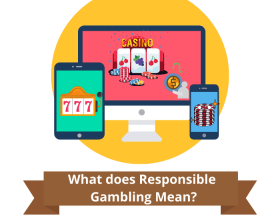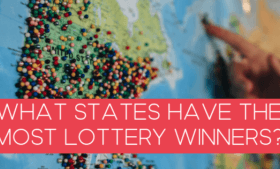Playing the lottery has become a widespread phenomenon, with millions of people purchasing tickets in hopes of winning the jackpot. Although the odds of winning are incredibly slim, the allure of a life-changing prize is too tempting for many to resist. This article explores the psychology behind our fascination with the lottery and why we continue to play, despite the statistical improbability of winning.
The Gambler’s Fallacy
One of the underlying principles driving people to play the lottery is the gambler’s fallacy. This fallacy occurs when individuals believe that past events influence future outcomes. For example, if a series of numbers hasn’t been drawn in a while, some people may believe that those numbers are “due” to be chosen. This flawed reasoning leads many to think that their chances of winning increase if they play these “due” numbers.
It is important to note that the lottery is a random game, and each draw is independent of the previous ones. The probability of any given number combination being drawn remains the same regardless of the number of times it has or hasn’t been chosen in the past. Yet, the gambler’s fallacy tricks people into thinking they can predict the unpredictable and manipulate the odds in their favor.
The Availability Heuristic
Another psychological principle at play when it comes to lotteries is the availability heuristic. This heuristic is a mental shortcut that relies on immediate examples that come to mind when evaluating a situation’s probability or frequency. In the context of the lottery, when we hear stories of people winning substantial amounts of money, these examples become prominent in our minds. We fixate on these rare success stories, thinking that winning the lottery is more common than it actually is.
The media’s coverage of lottery winners also contributes to this phenomenon. News outlets often sensationalize stories of jackpot winners, creating a false perception that winning is more achievable than it truly is. The availability heuristic works by emphasizing the most memorable and vivid instances, causing us to overestimate the likelihood of winning and underestimating the actual harsh odds.
The Illusion of Control
Humans have an inherent desire for control, and playing the lottery provides a false sense of control over an uncertain outcome. By choosing their numbers, individuals believe they have a say in their fate, even though the selection is entirely random. This illusion of control allows people to perceive themselves as active participants in the decision-making process, increasing their enjoyment of the game.
The lottery industry capitalizes on this illusion by offering various options to select numbers, such as birth dates, lucky numbers, or favorite digits. Such choices give players a sense of personal agency, creating a stronger emotional connection to their ticket. This emotional involvement makes winning all the more rewarding if their chosen numbers happen to match the drawn ones, further reinforcing the belief that they played a significant role in the outcome.
Hope, Escapism, and the Dream
The lottery provides a glimmer of hope, offering a chance to escape the mundane and dream of a more prosperous life. For many, purchasing a ticket becomes an investment in hopes and fantasies, fueling anticipation and excitement. The mere possibility of winning allows individuals to momentarily imagine a life free from financial worries.
This hope and escapism are particularly appealing during times of economic uncertainty or personal hardship. The lottery offers a temporary respite from everyday struggles, allowing individuals to dream of a brighter future. Despite the slim odds, the dream of winning entices people to continue buying tickets, as the emotional benefits derived from this hope outweigh the rational evaluation of the odds.
The Social Aspect
Playing the lottery also has a social component, as it provides an opportunity for individuals to participate in a shared experience. Lottery pools, where groups of co-workers, friends, or family members contribute money to buy tickets collectively, have become increasingly popular. These pools foster camaraderie and a sense of belonging, creating a bond centered around a shared desire for financial prosperity.
Furthermore, lottery jackpots often capture the collective imagination, sparking conversations and discussions among friends, colleagues, and even strangers. Participating in these conversations allows individuals to feel connected and involved, reinforcing their desire to play, even if they do not regularly partake.
The Monetary Bias
Lastly, there is a cognitive bias associated with lottery participation: our tendency to overestimate the value of monetary gains. Financial gains, particularly large ones like lottery jackpots, are perceived as highly valuable, and our brains are wired to overemphasize their importance.
Research has shown that the anticipation of a potential reward triggers the brain’s pleasure centers. The mere thought of winning a significant amount of money releases dopamine, a neurotransmitter associated with feelings of pleasure and reward. This dopamine release generates positive emotions that motivate individuals to keep playing, despite the long odds.
Conclusion
Playing the lottery taps into several psychological factors that drive our behavior. The gambler’s fallacy, availability heuristic, illusion of control, hope and escapism, social aspects, and the monetary bias all contribute to our persistent desire to buy lottery tickets.
While indulging in the occasional lottery ticket may provide entertainment and a brief moment of hope, it is crucial to maintain a realistic perspective. Understanding the psychological forces at play can help us make informed decisions and prevent excessive spending on a game designed to favor enormous odds.






